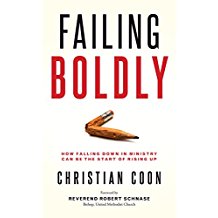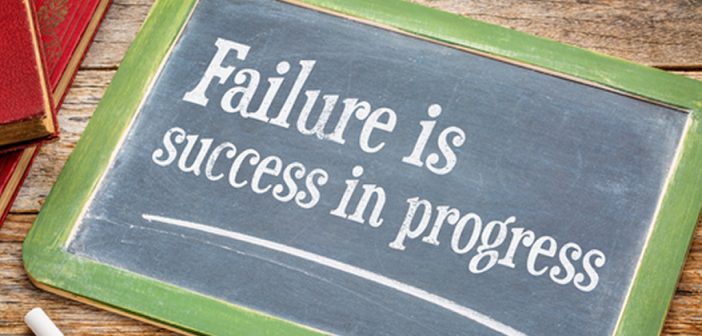Christian Coon, co-founding pastor of Urban Village Church in Chicago and author of Failing Boldly, believes that a key to fruitful ministry is the ability to endure failure and learn from your mistakes. In the book, he outlines practical steps to encourage honest evaluation.
Hollywood star Reese Witherspoon dislikes watching herself on screen. In an interview in 2010, she said: “Who feels good looking at themselves…? Nobody, right? And it’s torture! Why would you want to watch yourself being stupid and pretending to be someone else?” Why would you want to watch yourself being stupid, indeed? It’s one of the toughest things about learning from your failures.
And yet doing a review of our failures is necessary. We want to make sure that we are learning from failure, so we don’t simply fail for failure’s sake. This isn’t easy, of course, because who, other than coroners, likes to do autopsies?
We must document failures and then actually use what we learn when we attempt these events and programs again.
Anything worth doing is worth evaluating
Evaluation is crucial. When people ask me about church planting, I often encourage them to think about going through community organizing training, which, among other things, helps individuals learn the necessity of building public relationships. Something else we’ve learned from community organizing is that anything worth doing is worth evaluating.
Speaking the truth in love
We haven’t perfected the art of evaluation at Urban Village, but we have learned it’s almost impossible to be totally objective about evaluation. Real people put in lots of real hours, and they understandably have ownership in what they created and how it turned out. That’s why you can’t forget the tried-and-true process of naming the things that went well and honoring the faithful effort. There’s an emotional aspect to risking and failing, which is why it’s key to remember not to take things too seriously, to name and acknowledge the pain of failing, and to remember that your true identity is not failure but belovedness. But you also have to speak the truth in love (with others and with yourself) when evaluating, and there are practical steps you can follow.
Build evaluation into everything you do
First, you have to include evaluation in your ministry plan. People put a lot of time into planning or organizing an event, and the vast majority of their efforts understandably go into the steps leading up to the event. In my experience, though, even the best planners sometimes fail to include a post-event meeting where you evaluate what happened.
Often you’re so unbelievably relieved and exhausted when the event is over that you just want to put all your notes in a file folder or an Internet cloud maybe to review in the future. But later evaluation rarely happens. When you plan something, then, make sure that you also include a post-event gathering. Make it a celebration of both the lives you touched and the failures that occurred.
Document failures
Second, as you go about working the plan or creating the event, make sure someone is recording everything, and make sure that you know where this information is, especially if the event is annual. There have been times at Urban Village when we’ve done the evaluation after the event and identified some good things to do differently the next time, and somebody writes notes and puts them into some Internet cloud, and the event comes along the next year and we forget who recorded the notes and where the notes are, which means we are relying on our memories.
The tricky thing about memories, though, is they become hazy, and we tend to remember all the wonderful things that happened and never remember the failures. We cannot simply rely on our memories. We must document failures and then actually use what we learn when we attempt these events and programs again.
 This article is adapted from Failing Boldly: How Falling Down in Ministry Can Be the Start of Rising Up (Discipleship Resources, 2017). Copyright © 2017 by Christian Coon. All rights reserved. Used by permission. The book is at Cokesbury, Amazon, and Upper Room Books.
This article is adapted from Failing Boldly: How Falling Down in Ministry Can Be the Start of Rising Up (Discipleship Resources, 2017). Copyright © 2017 by Christian Coon. All rights reserved. Used by permission. The book is at Cokesbury, Amazon, and Upper Room Books.
Related Resources
- Lewis Pastoral Leadership Inventory™ (LPLI), a 360-degree leadership assessment instrument for clergy
- Cultivating a Feedback-Friendly Congregation by Lovett H. Weems, Jr.
- The Power of Five Questions by Matthew T. Curry







